
by Robert Bowie, Jr. | Oct 22, 2019 | Featured, Poetry
Working on the libretto for the operetta, Vox Populi, has brought me back to my love of poetry.
My favorite poems create a universe with a few words. Two good poems with a similar subject, put side by side, can introduce the creator of the other.
Like a painter organizes color and shape with his or her brushstrokes, the poet organizes a vision with the sound and rhythm of words:
“Whose woods these are I think I know./
His house is in the village though;/“
The brushstrokes? The sound and rhythm of these two lines? Speak them out loud. They are like the rocking of a hammock they are so smooth and quiet.
In complete contrast however:
“I sought a theme and sought for it in vain,/
I sought it daily for six weeks or so./“
Brush strokes? This is not like the rocking of a hammock, it is like riding a three-legged horse.
Those are the opening two lines of two completely different poems by two completely different people. Now let’s look at the last two lines of these two poems.
“And miles to go before I sleep./
And miles to go before I sleep./“
Brush strokes? The same rocking hammock. Compared to:
“I must lie down where all the ladders start,/
In the foul rag-and- bone shop of the heart./“
That must’ve been a hell of a rough ride? You are correct.
They are both about the end of life. The first by Robert Frost is entitled “Stopping by Woods on a Snowy Evening” and the second by WB Yeats is in titled “The Circus Animals’ Desertion.”
Both are about “acceptance,” it seems to me, but that acceptance comes in completely different, very personal forms. Frost’s, in a late evening snowy New Hampshire woods, and Yates’, with the casting off his “Circus Animals” (his life’s work of Irish themes).
The libretto for the operetta is meant to be baudy and entertaining. My poetry, on the other hand, is a personal statement that is directed from me to the reader. It’s from my heart.
I have placed links to both poems below for your review and your own contrasts and conclusions. Feel compassion for these two people. They are writing because they are reaching out to you.
“Stopping by Woods on a Snowy Evening” by Robert Frost
“The Circus Animals’ Desertion” by W.B. Yeats
by Robert Bowie, Jr. | Oct 15, 2019 | FringeNYC, ONAJE, ONAJE Update
One year ago this past Sunday, our play Onaje had its opening night in NYC. We caught lightning in a bottle that night because of the exceptional talent of those people who came together to make that magic happen. Every performance was sold out and every reviewer gave us a rave.
Since that opening, Onaje has picked up steam, and is headed for a new production and a great future. We thought it might be interesting to ask: “Where are they now?”
Here is what we’ve learned:
Curtis Jackson, who played the titular Onaje, is currently assistant directing a new immersive performance Incomplete Conversations (produced by his company, Silent Theatre Company), a full-length play presented throughout multiple spaces and three floors. He also starred in Blacksite: The Musical! (produced by Soft Cage Films), and Eugenie, a short film with the Southside Filmmaking Youth Initiative.
Tim Rush, who played Henderson, was cast in the double role of Jackson/Kirk in Wendy Macleod’s Women in Jeopardy at The Shaker Bridge Theatre in New Hampshire last spring.
Bristol Pomeroy, who played Richard Middleman Sr, continues to be considered for TV and stage roles.
Prop Master Joey Paradise moved on to FRAGMENTS, a play about a woman with Alzheimer’s remembering being a girl in Austria during WWII. He also joined the New York company of Jersey Boys as a stage management sub and is working as a consultant and script doctor.
Ralph Meizler, our amazing Stage Manager, is currently in rehearsals for the touring company of Broadway hit Frozen.
Mary Hodges, who played Sarah, has been Assistant Director on Slave Play as it has made its way to Broadway! She can also be seen playing Judge Anita Wright on Law & Order: Special Victims Unit.
I also asked some members of my production team to send in their reflections.
Sue Conover Marinello, Producer
In the year since producing Onaje at FringeNYC in 2018, I have marveled at the amazing bonds this project formed. This story, the poetry of this writer, the vision of this production united us. The cast, the crew, the writer, the audience — so many wonderful people who make theatre possible — are joined in the shared experience that is Onaje. While this play highlights specific events that take place on the backdrop of an actual historical riot, Onaje joins us all in a shared history and quest to create a better America and world. It strives to imagine a reality where people respect one another.
To produce Onaje at FringeNYC was intense and wonderful. To continue to move this project forward to its next production is inspiring. The magic of theatre is borne out of hard work, focus, play, experimentation, and precision. Through 2019, Onaje has grown. I am grateful for those strong 2018 bonds, and look forward to 2020 as producers, cast, crew, writer and audience will once again unite to make theatre possible.
Katie Marinello, Social Media Manager
Onaje was a life-changing experience for me. Bob and Sue took a chance, letting me be their social media manager while balancing a full-time job. I learned so much in such a short time as we sold out tickets, grew our following, and increased engagement. I felt energized in a way I hadn’t in forever. Not only did I get to work with a fabulous group of people and see six dynamic and varied plays in six days, my next client was sitting in the audience at Bob’s play! Since then, I’ve been able to quit my full-time job and launch KT World Communications, LLC, a social and digital communications company. Bob has become a mentor as well as a friend and client and I couldn’t be more grateful. I can’t wait to see what’s next!
Jim Marinello, Assistant and fan
A year ago, I was lucky enough to see Onaje awe audiences night after night. Some of them remember 1967; many didn’t. Audiences came with high expectations, and they were not disappointed. Expectations have only grown since then. I have been a super fan of this piece since I first saw it in a staged reading well before the Fringe, and I am pulling for it to find the right forum and production to present its powerful message to a wider audience.
Informally, we have heard that everyone is doing well. More specifics to come but one year later it is pretty clear that good things come from collaborations with good people.
We thank each and every one of you who made this magic happen. If you have any reflections or updates to share with me, please send them along!
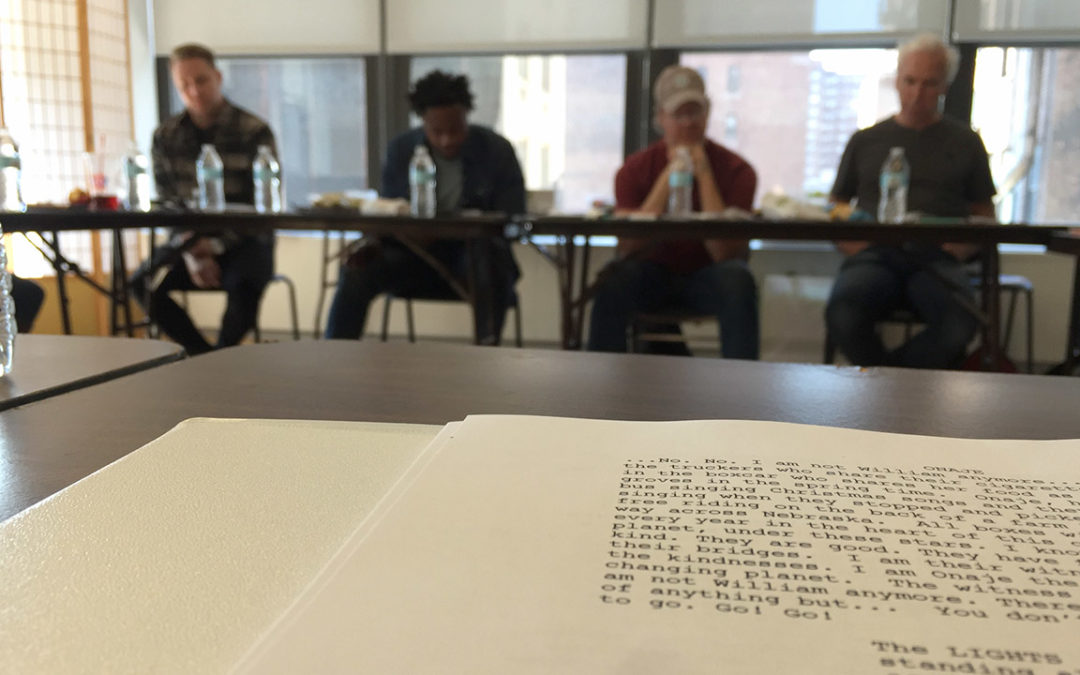
by Robert Bowie, Jr. | Oct 8, 2019 | Featured, ONAJE, ONAJE Update, Operetta
Ever since I finished the operetta with Christian in beautiful San Miguel, Mexico this August I have been having withdrawals. I have been waking up laughing from nightmares because they are in perfect Hallmark Card couplets:
“Happiness is when all your dreams come true/ ❤️❤️❤️
And become the job you really want to do./” ❤️❤️❤️
Instant dry heaves. What has happened to me? I can’t go back to sleep after something so sappy/awful as that. Probably because I’m afraid to… What is my mind trying to tell me? And I think it is permeating other aspects of my life!
“It also seems to happen when, without regrets/ ❤️❤️❤️
You start a blog and confess to dreaming couplets./” ❤️❤️❤️
Terrible! Terrible! OKAY! Think deep! What could be the cause of this?
Last Tuesday at noon on the eighth floor of the National Opera Center at 7th and 29th, I found myself looking out the window as the actors and Kevin R. Free were entering the room behind me. I should have been nervous.
I had reworked the script with Kevin and he had called for a table read to try it out with many new actors he had chosen. The room was on a corner of the building, so I had a view of 7th Avenue heading north and 29th west. From the eighth floor, even the traffic jams and people zigzagging past each other on the street below seemed to provide a calm order which I took for granted.
Kevin took control and the reading began. I decided to just listen. Predictably, but quite remarkably, the gifted actors brought the story from the page and built the characters and the relationships with their inflections. I was hooked. Every one of them was brilliant. They give a new draft its birth.
After discussion and feedback, Kevin, his agent John Essay, our producer Sue Conover Marinello, and I went next door for a drink and quick dinner.
The actors had universally loved the new rewritten play and those who had performed it before had said the already successful play had been substantially improved. Kevin, John, and Sue agreed and made wonderful additional suggestions. Only then did I realize, both the script and I had been on trial.
Being nervous would have been more than appropriate. But somehow the suggestions, the collaboration, and the successful result all were just steps heading for the more perfect production. Ok — so why am I dreaming in the language of heart-throbbing greeting cards? ❤️❤️❤️
The night before, I had been lucky enough to have dinner with Christian. He confirmed that in the second week of November he would have rehearsals of several of our songs for the operetta and then do a recording of them for marketing purposes. We discussed a new opera that he wanted me to sketch out. It all seemed so natural.
I decided to stay another night so I could see and study “Hadestown” which was chosen as this year’s best musical on Broadway. Christian had told me how much he liked and respected it. Without a second thought, I felt it was important for me to stay and study it.
That night after the theater let out, I walked through Times Square to get home. There were mobs and mobs of people taking photographs of each other below a massive screen, which showed the riots in Hong Kong in the constantly bizarre flashing neon that lit up the remainder of night. I felt oddly detached but quite comfortable.
The next afternoon on the way home, I chose a seat on the train that would allow me to look at the town of Havre de Grace as we crossed the river back to Baltimore. The sun was warm through the windows as it occurred to me: maybe all of this was normal. Maybe it was, just as I dozed off…
“Happiness is when all your dreams come true/
And become the job you really want to do./”
And then again, I couldn’t believe it! What is happening to me? I woke up laughing. ❤️❤️❤️
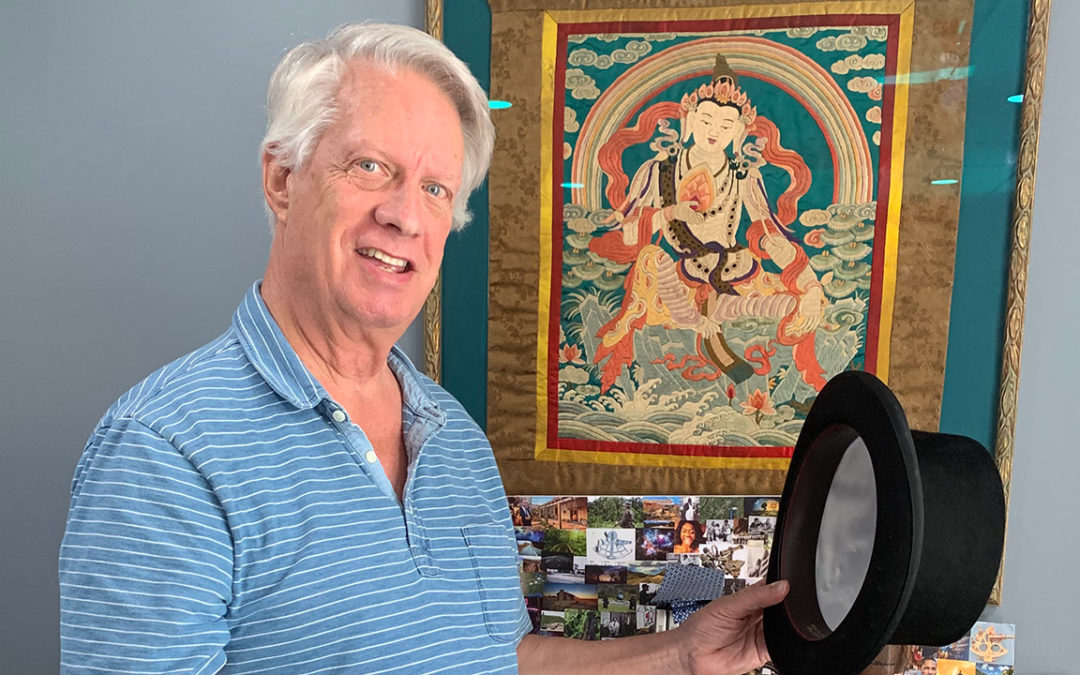
by Robert Bowie, Jr. | Sep 24, 2019 | Featured, ONAJE, ONAJE Update, Operetta, Plays, Travel
So his fool tells King Lear: ”Thou shouldst not have been old till thou hadst been wise.”
I am 72 years old today and one step further into my next life. No not the afterlife… the next step and the opportunity of freedom which that entails. As it’s my birthday, I hope you’ll allow me this time to reflect…
I decided to start this blog several years ago to chronicle what would happen to me in retirement. I loved the practice of law, but concluded that there is a time to retire before you get in people’s way and can’t find the bathroom. I wanted to stay a little bit ahead of that curve so I got out early.
I already knew that eccentricity and determination always trumps a loss of intelligence. So this was my chance to be free to try something entirely different, but I still was not free of trepidation. Delusions of grandeur are a wonderful thing until you start to think you might act on them.
Nonetheless, I first decided I would become a “political force” as a Democrat in an entirely gerrymandered Republican district because I was very concerned about how we, as a country, were being divided by political forces and I was going to change that. This was Trump country. I raised more money than all my Republican opponents combined and knocked on almost 7000 doors for more than a half a year. I was resoundingly defeated and Trump became our president.
Because I obviously had learned nothing about impossibility, next I decided I would become a professional playwright. I bought a Shakespeare coffee mug and applied to the Yale Drama school, fully believing that I would be the oldest applicant ever accepted to Yale’s drama school. I succeeded only in becoming the oldest applicant ever rejected by Yale’s drama school. Nonetheless, I had decided this is what I wanted to do.
Obviously I had to rethink this thing again, with just a little more of my failing intelligence. So I applied to the Commercial Theater Institute (CTI) of New York for a class in producing theater. I had a plan. When the first morning of class broke up the students got lunch and inevitability they talked about what plays they were considering producing. When it came to my turn to talk I informed them I wasn’t considering producing anything. I wanted them to produce me. It worked. The impossible happened. A young producer agreed to read my work, liked it and arranged for professional staged readings in San Francisco and later in New York.
Because I had excelled in something I didn’t want to do and I had completed an introductory class in it, I applied for an advanced class in producing at the prestigious O’Neill Conference in Waterford Connecticut. I got in and there I met Sue Conover Marinello, who produced my play Onaje with great success last year in New York, and Christian De Gré Cardenas of Mind the Art Entertainment who has an amazing history of producing and also writing the music for a number of amazing operettas in New York. Both became friends.
After Sue Conover Marinello’s production of Onaje in New York, Mind the Art commissioned me to write the libretto for an operetta, Vox Populi, a comedy about the seventh deadly sin of pride, for Christian’s music. Last month, Christian and I completed the operetta in San Miguel Mexico.
Because Onaje had done so well, Sue convinced Kevin R. Free, the wonderful NYC director, to read the script. Kevin had fresh and original insights which lead to my reworking the script and his commitment to direct its next production.
The blog has become a happy travelogue. It is a history of mistakes and opportunities. It has taught me that even though I may not succeed in any of this, I’ve lost the fear of failure and each day is more fun than the last. The next step into a new thing is the hardest thing I ever do but it is getting easier with age.
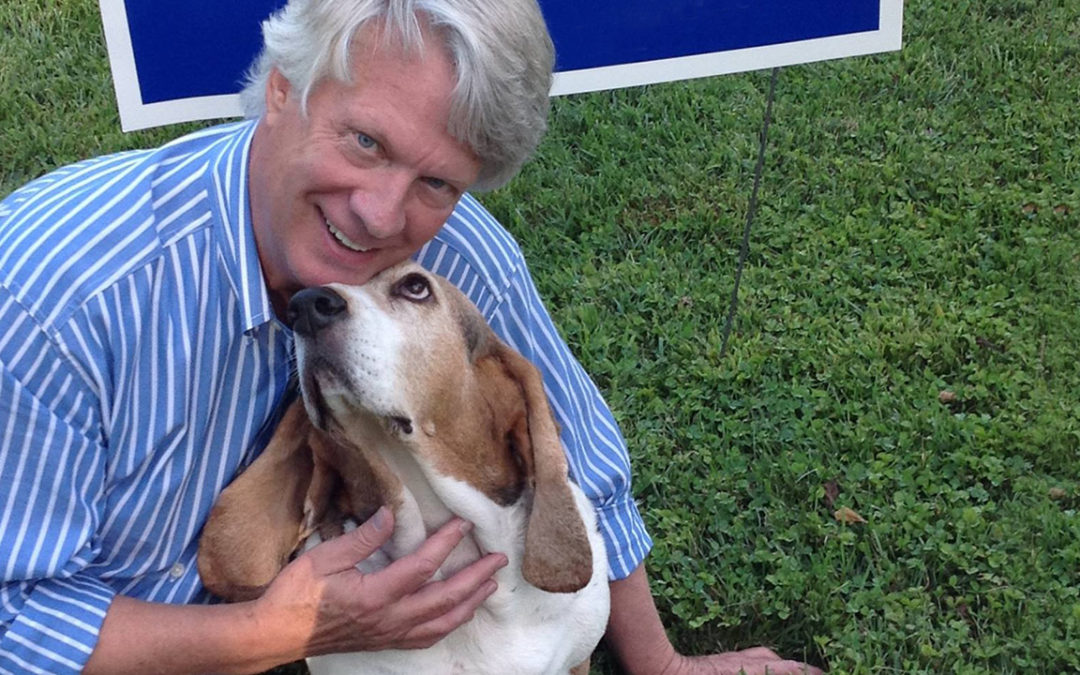
by Robert Bowie, Jr. | Sep 17, 2019 | ONAJE, ONAJE Update, Plays
I’m trying to teach an old dog a new trick: “patience.” But “impatience” has been one of that old dog’s primary character traits. I am that old dog.
After my play Onaje received its wonderful reviews in New York last October, I was impatient to immediately take it “off-Broadway,” but I was advised because New York is so expensive (The New York Times reported last Sunday that the brilliant and very controversial new Slave Play has spent $3.4 million to get to previews on Broadway) to be patient and watch “good things happen” before the next step.
I was patient and great things happened. Kevin R. Free, the gifted New York director, read the script and was interested but he told me, ”You missed an opportunity.” Dan, Onaje’s father, is African American, and his counterpart, Richard Middleman, Jr.’s father, is white. Both were fellow crabbers and friends down at the docks. Both have been missing their sons because of what happened “that night” so many years ago. What did that do to their friendship? Isn’t that question at the heart of this play?
It was as if Kevin had X-rayed the play and found the missing piece that lifted the play from specific to universal, and I had found a friend and hopefully the dream director who knew the script at least as well as I did and perhaps better. It was the same play but, looked at from a different angle, it was no longer just about Onaje— it had become about “American Terrorists,” the Klan as a destroyer of families.
I immediately started to rewrite so that I could send the new draft to Kevin. He like the rewrite and agreed to direct it in the future, but he wanted to have a table reading of the new script. I, of course, became impatient but I am learning ever so slowly that collaboration offers a kind of maturation and focus.
The play is getting stronger. Kevin’s agent, John Essay, and our producer, Sue Conover Marinello are working together and looking at budgets, venues, and theater opportunities.
The table reading has been set for October. We are off to the birth of a new and much more powerful play that will hit the stage soon but, of course, never soon enough for me. The actors will assemble at the Opera Center on Seventh Avenue in the next few weeks and we will hear a deeper and richer story come to life and I will grow wiser and benefit from learning to become more mature and, patient… Maybe.
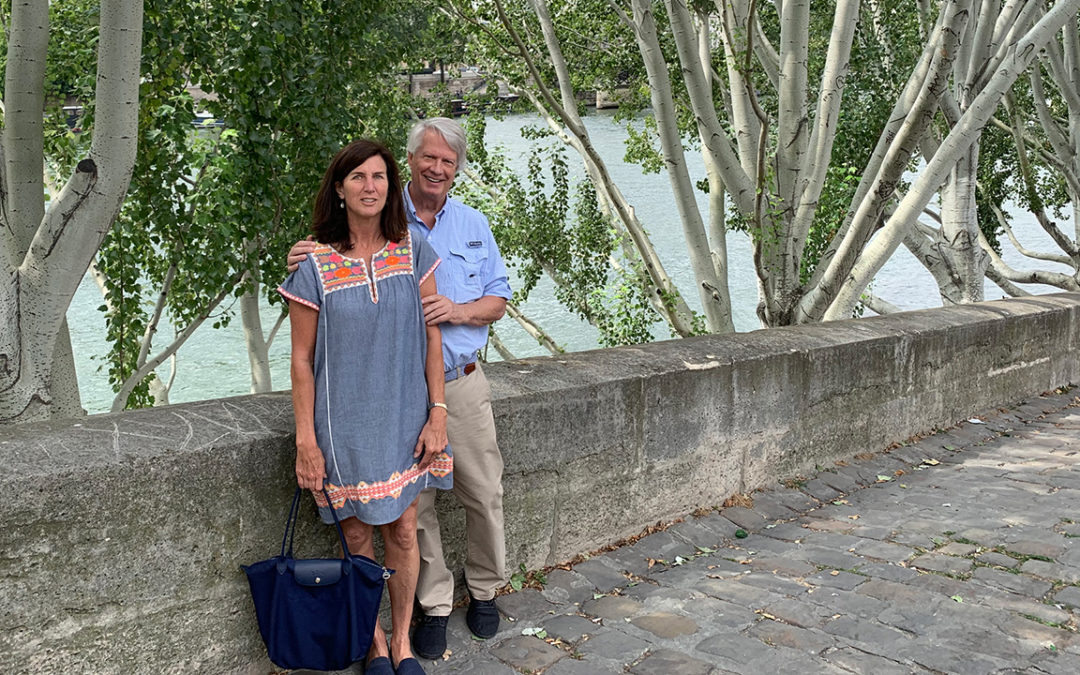
by Robert Bowie, Jr. | Aug 27, 2019 | Operetta
Blessings come in little revelations.
I have thrown myself headlong into my new career as a playwright, but always with the lingering regret that I had not committed to this career sooner. All my new friends in this artistic world are half my age and struggling artists, working, and in many cases raising a family at the same time. I have told people that I have 40 years to make up before I can accomplish what I want to be. I have set up a little office where I write and edit from 9:30 to 4:30. I work hard everyday.
I rarely stop to appreciate the success I have had. Within the last year, I have seen one play extremely successfully performed in NYC, been commissioned to write a libretto for an operetta with the highly acclaimed Christian De Gré Cardenas, and just this month, traveled to Mexico with him, where we finished the operetta. I am very fortunate to be working with an extremely accomplished director and actor, Kevin R. Free, to bring a new and more vibrant Onaje alive in a broader venue in New York City. I have been a man on a mission because of my age and late start.
While I was working on the operetta with Christian in Mexico, he casually mentioned that a mutual friend of ours, Brian, said to him: “You know, Bob has done it right. He made sufficient money so now he is free to work full-time on his art.” That surprised me. I have thought about it and I am not late. I am extremely fortunate to be where I am right now.
I love what I am doing. I have a lifetime of experience to draw from as a writer and a gathering of friends who can help me mature into what I hope to become. I have just finished reworking a new play and am about to send it to my producer, Sue Conover Marinello, for her review and distribution and to Parker Bennett and Katie Marinello for comment and publicity. I have already outlined another play and am researching for another libretto, both of which I will complete before spring.
As I approach my 72nd birthday in September, I am taking a deep breath and realizing that Brian is right. I am unusually fortunate to be able to be living this second Curtain Call. Blessings come in a little revelations.
Now back to work.
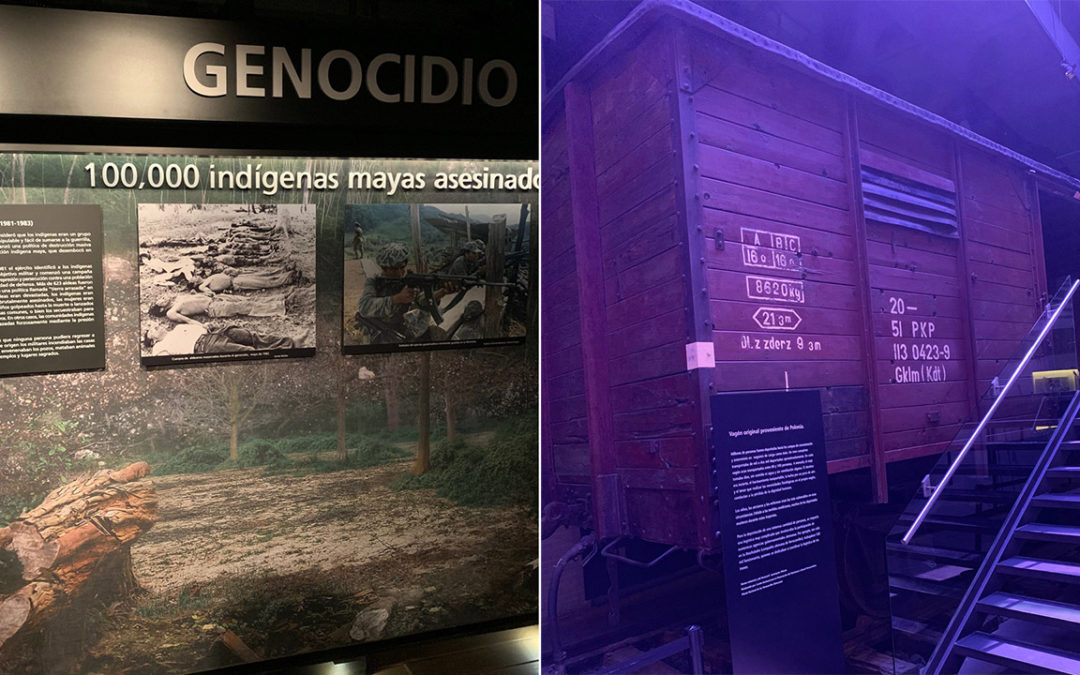
by Robert Bowie, Jr. | Aug 21, 2019 | Featured, Operetta, Travel
Over the last month I have been traveling. As I would go into a hotel room there was this game I played. I found I couldn’t imagine who had lived there before me. I have played this game before. I have always wondered who were those people who have looked out the same window at the same view?
Yesterday, I stayed in Mexico City for one day with Christian de Gré Cardenas, my friend and collaborator, before flying home. We were celebrating a magnificent week during which we finished the libretto and musical outline for our new comic operetta, Vox Populi (the voice of the people).
Mexico City has more than 180 museums — more than any other city in the world. (Paris, where I was earlier this summer, is second with roughly 140.) Christian and I started our day with an early breakfast, went to different museums all day, finished at 5:45 that evening, and had dinner.
The museums have their own themes but one in particular returned me to my question about imagining the people who have lived in the same hotel rooms as I: Museo Memoria y Tolerancia, The Memory and Tolerance Museum.
Half of it is dedicated to the nightmares of humankind, but the second half is dedicated to tolerance. The first half shows, in painful detail, pictures, films, and the actual objects of genocide during and after WWII: German concentration camps, Rwanda, Sarajevo — it still goes on all around the world every day, forever.
This museum was very focused and shocked me out of my complacency on a subject that I felt I knew relatively well. How is it I only understood these numbers as the amount of times they would have filled a football stadium as a milling crowd or the number of times the population of Baltimore City?
These statistics were always there in The New York Times, The Sun, and The Post as I turn to the entertainment section or the sports page. Yet here, I walked into a small box car that carried people to the camps. I saw footage of the guns going off, the smoke, and the sacrificed falling headlong onto others in a mass grave. There in front of me was the gun that had been fired in the footage.
At dinner, as we talked, Christian read European news article on his phone, which I had missed. It said Michelle Bachelet, UN High Commissioner for Human Rights, had condemned the “undignified and damaging” conditions in which migrants and refugees are being held at the US border. She called for children never to be put in immigration detention or separated from their families. She said she was appalled by the camps, and that several UN human rights bodies had found the detention of migrant children may constitute cruel, inhuman, or degrading treatment, which is banned under international law.
In response, the United States threatened to stop payment of its dues unless it was exempted from the relevant UN provisions.
From the walls of that museum, the eyes looked back at me. It always starts with demonizing a selected group of people. There before my eyes the Propaganda was framed: that paper that had been circulated to the crowds and now was framed on the wall.
It always started with containment “for the public good”. Who are these people that look back at me from a museum exhibit? They must have looked out the windows at the same world I rent now.
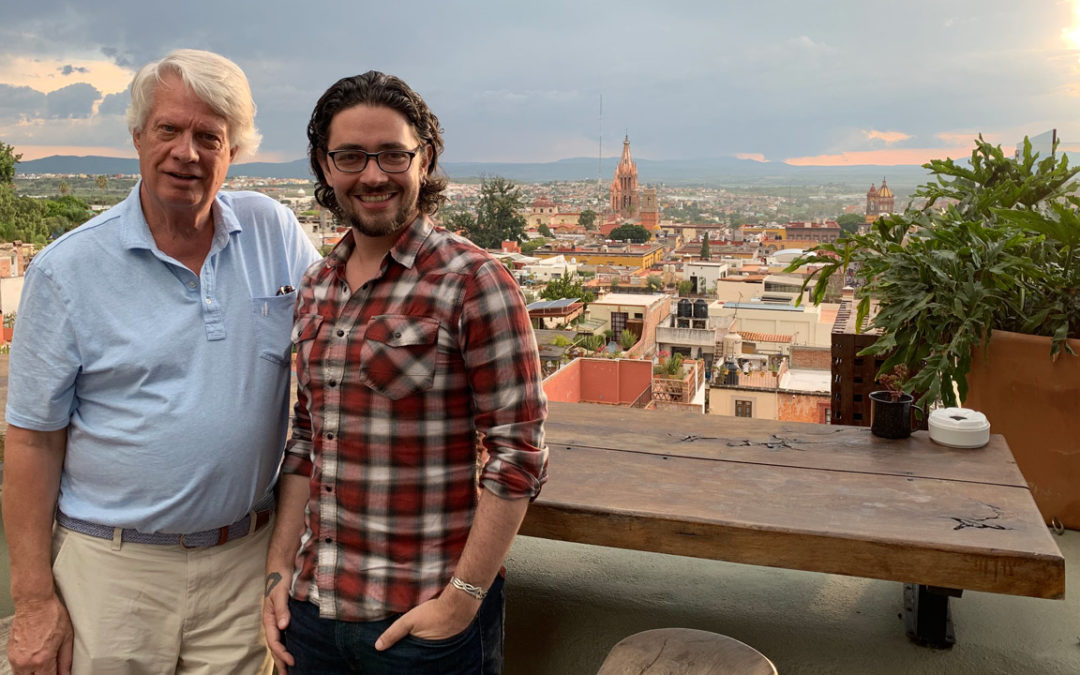
by Robert Bowie, Jr. | Aug 13, 2019 | Operetta, Travel
Is this how you make an operetta? I swear Christian De Gré Cárdenas and I are only following the charter of our employer, Mind the Art Entertainment, which requires, ”Make Art and Have Fun.”
We are five hours north of Mexico City, holed up in San Miguel de Allende, diligently working over breakfast from 9:30 to 1:30, having a little lunch, perhaps a swim, back to work from 3:30 to 6:30, and then off to the rooftop bars, dinner, local beer, mezcal, and tequila.
This is a beautiful place with deep Mexican history rooted in its independence and, in the last 70 years, the arts. In the winter, American tourists and expats flood in, along with vacationing Europeans. In the summer, far fewer visitors come and generally only for the weekends. They come here to experience the battling mariachi bands around the church plaza, the three-star restaurants at a third of New York and European prices, the stunningly beautiful textiles, art work, and wall art. Here, you walk on cobbled streets older than any in the United States and are surrounded by color.
Christian has had numerous operettas performed in NYC, most recently based on the “seven deadly sins.“ I am honored to have been chosen to write the libretto for the final operetta based on the overarching sin of “pride.”
The first day together, we went over the script I wrote over the last several months, and we just talked about it. The second day, we went to work and went line by line, page by page through the first act. The third day, we worked through the second act and celebrated the harmony of our efforts with a big lunch on a rooftop overlooking the city.
This carrying out of our corporate responsibilities is serious business. Our assignment is to write a bawdy, irreverent “meta” piece (the actors can break character and speak to the audience). It is written in rhyme and hip hop and has a singing dog.
Our first few days have been so productive, we are ahead of schedule. Tomorrow, Christian continues to outline and compose the music while I adjust and continue to shape lines and rhythms. The next several days before we leave, we will shape the two efforts into one operetta and be prepared to have it ready in the fall to be sent out to investors and performance venues.
In the meantime, over the next week, we will continue to carry out our corporate duty.
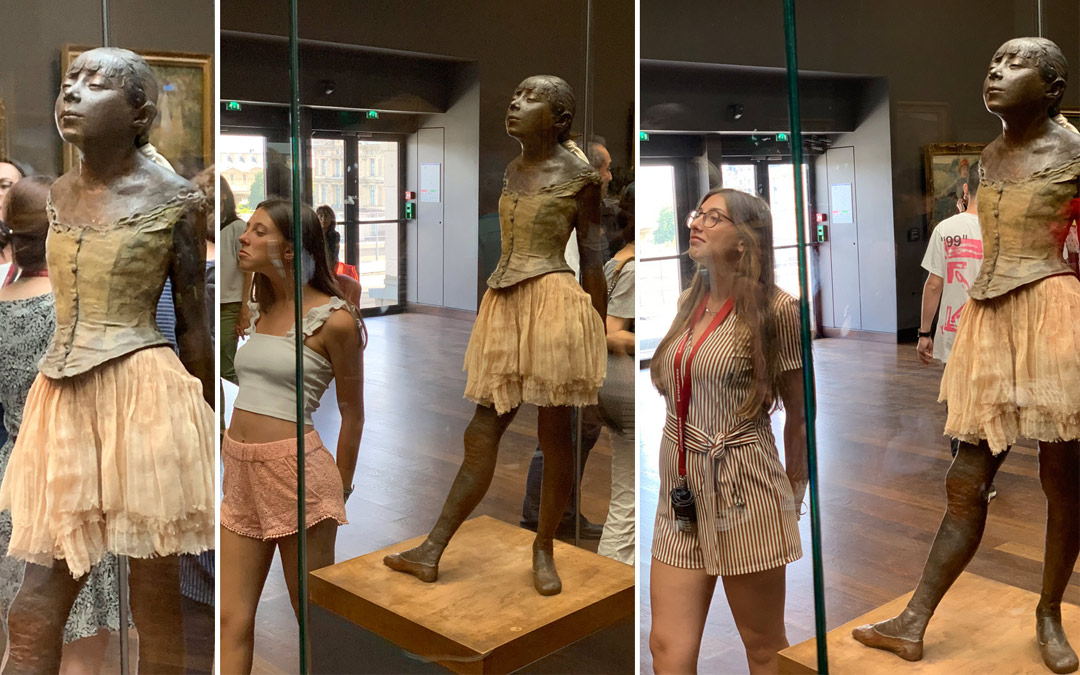
by Robert Bowie, Jr. | Aug 8, 2019 | Featured, Poetry, Travel
As I turned away from Degas’ statuette of a dancer at the Musee D’Orsay in Paris last week, I almost missed the imitators. The imitators were lining up, looking at the statuette and striking a pose. The reaction was not mocking and somehow not disrespectful. The imitators were reacting to a man-made object created out of his imagination. The interaction is what mattered.
When I was in high school, I read a line from W. H. Auden that said “poetry makes nothing happen.” It stopped me in my tracks. It was the late ’60s. I wanted to do things that made things happen. I became a lawyer. I made things happen.
Now I know I misread the line. Auden was making fun of all those things that appear to make things happen but really don’t. Art makes things happen in that it offers the chance to interact with a created object from another person’s imagination.
But why does that matter? It seems that at the center of our existence we travel a number of years in the mundane pursuit of what we need to survive, but art offers a conversation with another who is, or has been, on that same journey. It offers, but does not demand, this conversation.
In the same gallery, hordes of people were moving from picture to picture, cell phones out, photographing the exhibit as they hurried by. They had not accepted the offer. They were just capturing the object.
The imitators had accepted the offer. They were interacting with the Degas’ statuette.
The conversation can happen in many forums but it is always between the artist and the self. It can come through some or all the senses. It can be theoretical. It can come with an artist’s demand for your attention, as with Andy Warhol asking you to notice common objects, but for me it is always a very personal person-to-person communication.
It can also be environmental. On my way home, I noticed the statues in the park and the park in the city as I walk through. The art of the statue inside the art of the park surrounded by the mundane existence of the traffic and commerce of the city.
I found Auden’s quote:
“For poetry makes nothing happen: it survives
In the valley of its making where executives
Would never want to tamper, flows on south
From ranches of isolation and the busy griefs,
Raw towns that we believe and die in; it survives,
A way of happening, a mouth.”
In Memory of W.B.Yeats
(d. Jan. 1939)
He says all this better than I but I had to learn it for myself.
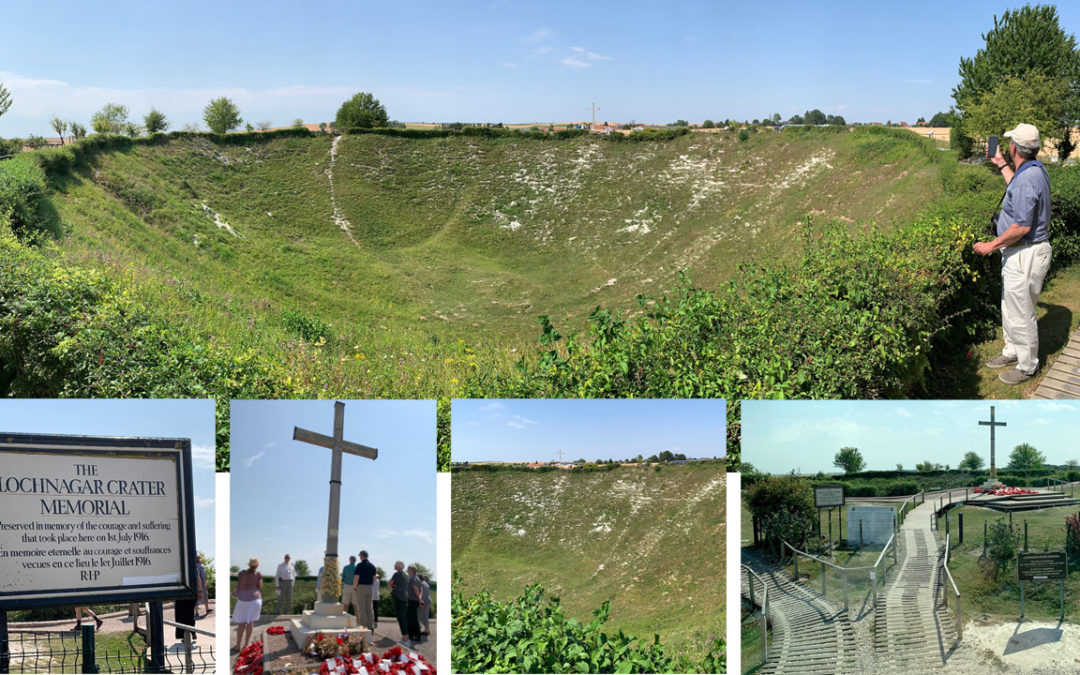
by Robert Bowie, Jr. | Aug 1, 2019 | Featured, Travel
It is almost impossible to describe the First World War in simple terms. It is unresolved as to how it evolved into the war it became — the number of casualties it caused easily exceeds eight million dead and double that in maimed and wounded — and its end probably was the beginning of the Second World War only twenty years later. Books and books and books continue to be written about it. It is a wellspring of scholarship and a mirror for the future and present.
There are two things it demonstrates to me, however. First, we seem to be incapable of maturing at the same speed as our ability to make weapons evermore capable of our mass destruction. Second, we seem to be able to commit ourselves blindly to use these weapons without realizing the extent of the destruction that we can cause. Both of these observations demonstrate the incredible capacity we have in the form of the “nation state” to destroy ourselves, despite our individual capacity to feel compassion, empathy, and kindness for each other on a daily basis as human beings who are not in a state of war.
Why have I attached a picture of a crater?
WWI introduced airplane warfare, submarine warfare, the machine gun, the tank, and gas warfare. The warfare was so intense that there are specific monuments dedicated to both missing soldiers and unidentifiable body parts.
So, is there something, a simple example from this war, that demonstrates redemption? Yes, I think there is.
Both sides built tunnels for days and months for incredible distances under entire towns and enemy lines to set explosives. Some of these tunnels were only four feet wide and three-and-a-half feet high. The excavation of the dirt was extremely difficult and endlessly time consuming. Imagine the commitment. Imagine the claustrophobia. Imagine the amount of explosives that then had to be carried underground to blow up a town or an enemy stronghold.
As I have said, the picture I have provided is of a crater. It is thirty to forty feet deep and almost a football field wide. The explosion sent debris four thousand feet in the air and killed and injured people who were never found. I took the photograph from the far side. There is a monument on the other side which, if you look closely, is a cross that is several stories high.
In the alternative, it has been documented that during a one-day armistice for Christmas the soldiers from both sides came out over their trenches, exchanged chocolate and cigarettes, and sang Christmas carols together.









